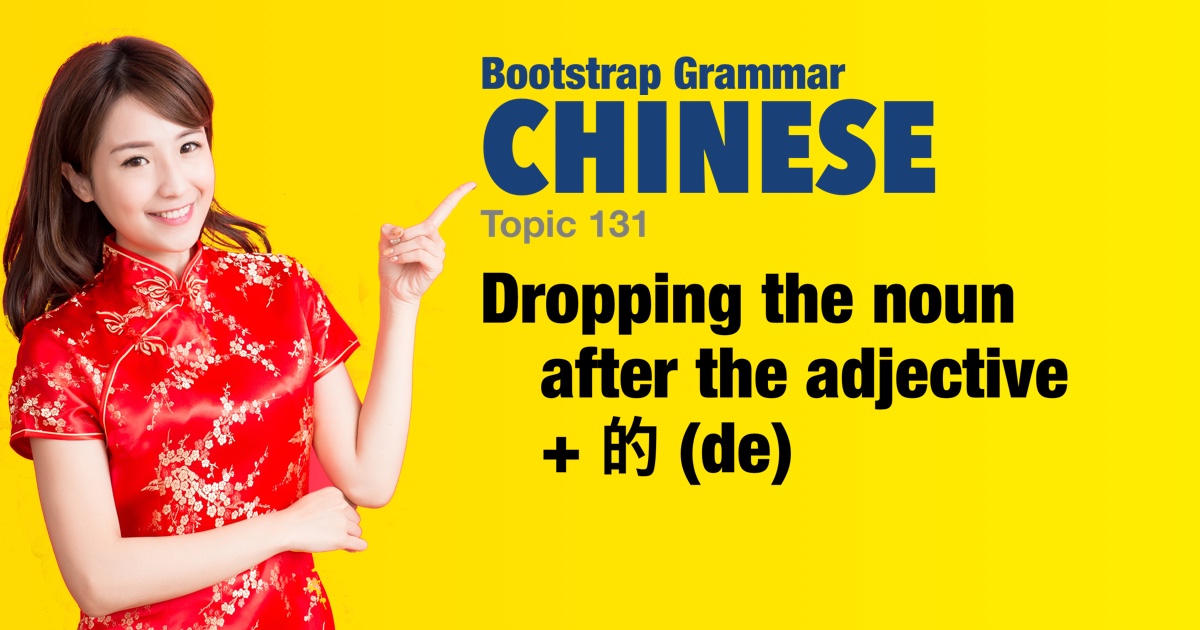Chinese grammar - Dropping the noun after the adjective + 的 (de) |
|||
|
|||
In Chinese, it is common to drop the noun after an [adjective] + 的 (de) structure when the noun would be repeated or when it is understood from the context. This makes the sentence more concise and avoids redundancy. |
| Examples: | |
|
他是最好的。
tā shì zuì hǎo de. He is the best (one).
|
|
|
这是最贵的。
zhè shì zuì guì de. This is the most expensive (one).
|
|
|
你是最聪明的。
nǐ shì zuì cōngmíng de. You are the smartest (one).
|
|
|
这是最大的。
zhè shì zuì dà de. This is the biggest (one).
|
|
|
他是最小的。
tā shì zuì xiǎo de. He is the smallest (one).
|
|
|
她是最漂亮的。
tā shì zuì piàoliang de. She is the most beautiful (girl).
|
|
|
这是最新的。
zhè shì zuì xīn de. This is the newest (one).
|
|
|
他是最快的。
tā shì zuì kuài de. He is the fastest (man).
|
|
|
这是最难的。
zhè shì zuì nán de. This is the hardest (one).
|
|
|
那道菜是最辣的吗?
nà dào cài shì zuì là de ma? Is that dish the spiciest (one)? |
|
|
这是最好的吗?
zhè shì zuì hǎo de ma? Is this the best (one)? |
|
|
是的,这确实是最好的。
shìde,#zhè quèshí shì zuì hǎo de. Yes, this is indeed the best (one).
|
|
|
她是最漂亮的。
tā shì zuì piàoliang de. She is the most beautiful (one). |
|
|
她是班上最漂亮的。
tā shì bānshàng zuì piàoliang de. She is the most beautiful (one) in the class.
|
|
 |
|


 Unabbrevated:
Unabbrevated: 
